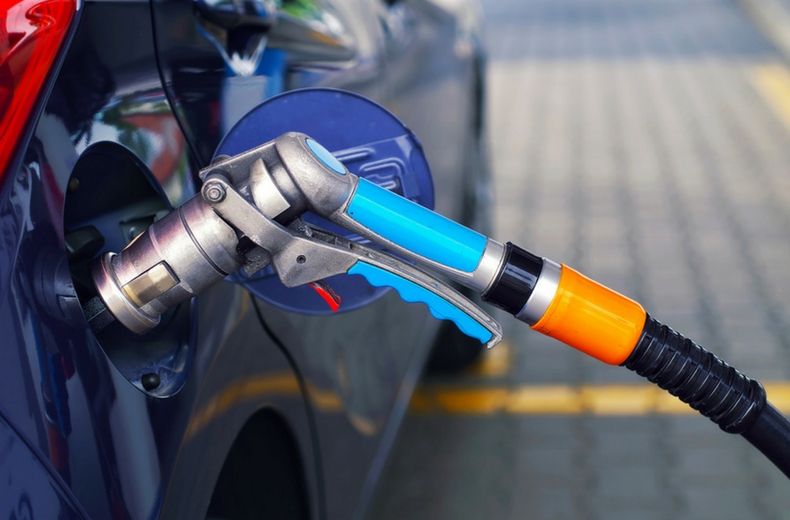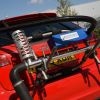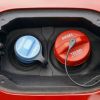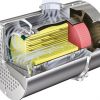Combine this with the increased government pressure on owners of diesel cars and the cost and infrastructure concerns around electric cars and it could lead to motorists looking elsewhere.
So what of LPG, the seemingly ideal alternative that's been left out in the cold of late? Here we take a look to see whether it's a viable option or not.
What is LPG and how is it made?
LPG stands for liquefied petroleum gas and is a type of 'liquid gas' that can be used as fuel for a variety of purposes, including powering cars.
Also referred to as butane and propane gas, or autogas in motoring circles, it is the by-product of the processing of natural gas liquids as well as the refining of crude oil.
While traditionally it was deliberately burnt off and wasted, in the last few decades it's been recognised as a versatile low-carbon fuel – and used productively.
Although the phrase ‘liquid gas’ appears to be a contradiction in terms, it actually describes a clear gas that turns to liquid when subjected to pressure or cooling: it’s this characteristic that allows it to be stored in tanks in a vehicle.
Most petrol cars can be fitted with an LPG (Liquid Petroleum Gas) conversion, turning them into ‘dual-fuel cars’ that can run on LPG as well as petrol. Some brands, such as Dacia, have sold conversions from the factory.
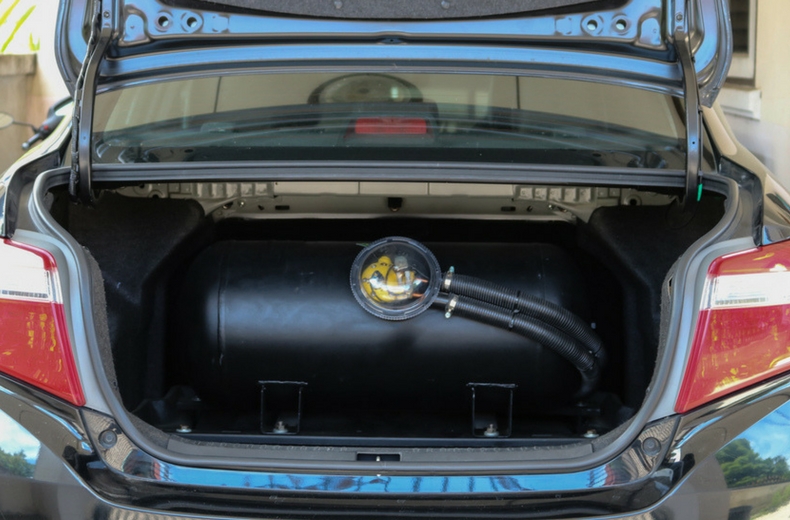
The advantage of this is clear when you look at filling station prices for the two fuels: LPG fuel is well under £1 a litre in 2024, whereas petrol and diesel hasn't been under that figure since 2007.
Although cars are unlikely to be more fuel-efficient when running on LPG, you could still save a chunk on your fuel bills. Once the cost of the LPG conversion has been paid off, this could add up to a significant saving – and the more you drive, the more you save.

RAC sale – up to 33% off*
• Roadside cover from £5.29 a month†
• We get to most breakdowns in 60 mins or less
• Our patrols fix 4/5 breakdowns on the spot

Why is it not more widely used?
Although LPG is widely used by homes and businesses, less than one percent of cars on UK roads are fuelled by it.
There are a number of reasons why many people are reluctant to convert their car to run on LPG but one of the biggest reasons is the lack of incentives from the UK Government.
Although cars converted by approved companies may qualify to save on vehicle excise duty (VED), by being classed as an ‘alternatively-fuelled’ car, the latest rules mean these only save £10 per year on road tax.
Much like electric cars, it’s a ‘chicken and egg’ scenario. With LPG-converted cars representing such a small proportion of all vehicles on UK roads, there’s little incentive for filling stations to offer LPG. And if it’s hard to find filling stations stocking it, motorists will be reluctant to convert to LPG.
Many people don’t understand the advantages and disadvantages of running an LPG car. Without the same incentives as electric cars, LPG simply isn’t being promoted in the UK. Many motorists simply aren’t aware of its existence.
Drivers are also concerned about the expense. Converting a petrol car to run on LPG can cost as much as £2,000, and there’s no guarantee from the UK government that it won’t raise duties on LPG in the future. The price of LPG has also increased substantially in the last couple of years, slashing potential savings.
This uncertainty can make it difficult to sell an LPG-converted car, meaning you’ll struggle to get your money back if you do pay for a conversion and then sell the car.
Although a few car manufacturers have in the past experimented with offering factory-fit LPG kits on new models (you may find ‘dual-fuel’ Fords, Dacias, Vauxhalls, Protons and Saabs in the classifieds), they all sold in small numbers and, as such, only Dacia sells new LPG converted cars today.
How available is LPG?

Another reason why many people are reluctant to convert their car to run on LPG is the difficulty in finding fuel stations that provide it.
According to the UK trade association for the LPG industry, UKLPG, there are 1,400 LPG refuelling stations across the country compared to around 8,350 filling stations overall.
That means it’s more difficult to find LPG than petrol or diesel, especially if you live in a rural area where filling stations are scarcer.
It is getting easier to locate LPG stockists, though. There are now numerous websites and phone apps showing your nearest LPG provider, and even letting you compare costs.
A number of the big fuel station chains sometimes provide LPG, including Shell, BP and Esso, as do supermarket petrol stations, notably some Morrisons and Sainsbury’s stations.
Should I convert my car to LPG?
Let's summarise the pros and cons of converting your car to LPG.
Pros
- Cheaper than petrol and diesel
- Reduced CO2 emissions
- Quieter than diesel engines
- Evaporates in the case of a leak, so low risk
Cons
- Expensive to install
- Complicated – extra costs if it goes wrong and for servicing
- Can be difficult to fill up
Convinced? Let us know in the comments if you're an LPG convert.

